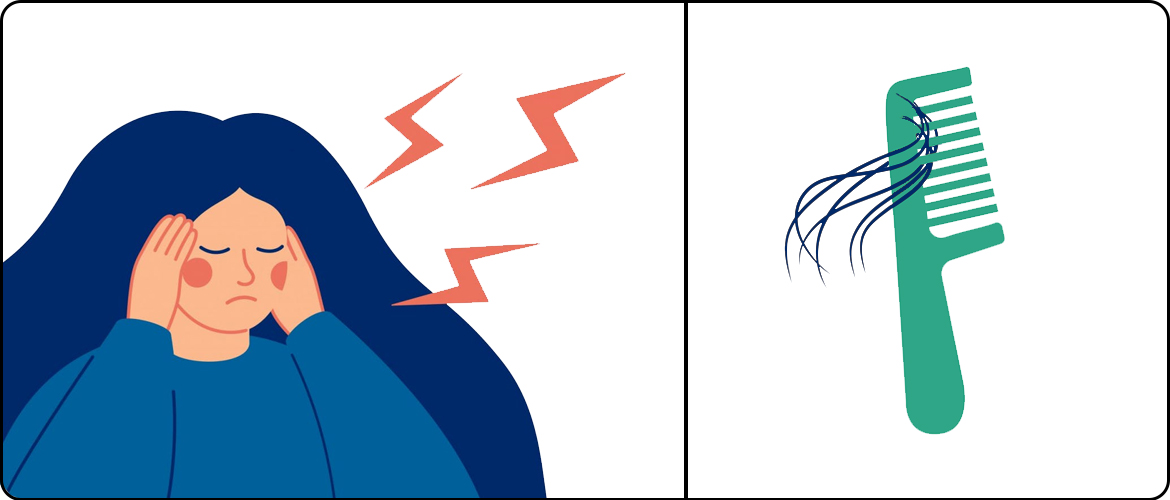Modern data shows that women who face stress at high levels are 11 times more likely to experience hair loss! This finding drew us to deep dive into the world of stress-related hair loss, remedies, treatment, prevention, and much more. Before you panic and wonder whether you are losing hair at an alarming rate, here are some pointers that will calm you immediately.
- Normal hair loss rate: It is normal for a person to experience loss of 50 – 100 strands of hair every day.
- Hair grows back in most cases: People experiencing hair loss due to grieving tend to get their hair back in six months.
- Plenty of preventive and reversible treatments: With the advancement of science and medical research, multiple successful hair loss treatments are available around you to find a fix.
Three common types of stress-related hair loss
- Chronic stress
- Acute stress
- Trichotillomania
-
Chronic stress-related hair loss & remedies
Stress that is caused almost every day and is long-term is referred to as chronic. Prolonged exposure to stress at work, home, relationships, travel, diet, etc can affect hormonal levels, which results in hair loss. If you are experiencing this type of stress-related hair loss, it is treatable and preventable.
Hair loss treatments for this type include visiting:
- A psychologist/psychiatrist to evaluate your mental health.
- A dermatologist or hair restoration specialist to receive hair nutrition supplements.
Remedies and hair loss prevention tips include:
- Meditation
- Consuming foods rich in biotin, protein, omega-3 fatty acids, vitamins C and E.
- Getting good sleep.
- Exercising
- Avoid heat and chemical hair treatments.
- Avoid shampoos with sulfates, polyethylene glycol, and parabens.
-
Acute stress-related hair loss & remedies
When a sudden unavoidable stressful event occurs in life, it is referred to as acute stress. Death of a close one, job loss, wealth loss, and terminal illness, childbirth, are a few of them. These events create a drastic shift in reality and force the human body to go into survival mode. During this time, the body tends to focus on keeping us alive and reduce nutrients to what it considers non-essential – like hair and nail growth.
People going through such stress experience sudden hair fall at a rapid rate. This type of acute stress-related hair fall isn’t permanent. The body takes time to adjust and hair growth gets back to normal within six months.
Hair loss treatments for this type include visiting:
- A psychologist/psychiatrist to evaluate your mental health.
- Gynecologist for post-partum depression advice.
- Sessions on coping with grief and loss.
Remedies and hair loss prevention tips include:
- Practicing staying calm through meditation and breathing exercises.
- Journaling and penning down thoughts.
- Eating a balanced diet.
-
Trichotillomania-related hair loss & remedies
Trichotillomania is a health condition where a person scratches, pulls, and plucks their hair out as a nervous habit. This results in bald patches all around the head. Hair follicles are damaged due to this habit which leads to permanent hair loss.
Hair loss treatments for this type include visiting:
- A psychologist/psychiatrist immediately when noticing the condition.
Remedies and hair loss prevention tips include:
- Practicing stress management and relaxation techniques.
Prevention is better than cure
Most stress-related hair loss can be prevented if monitored and controlled. Seek the help of a doctor when you experience unusual hair loss. Don’t wait before it is too late since certain conditions like trichotillomania results in permanent hair loss.

